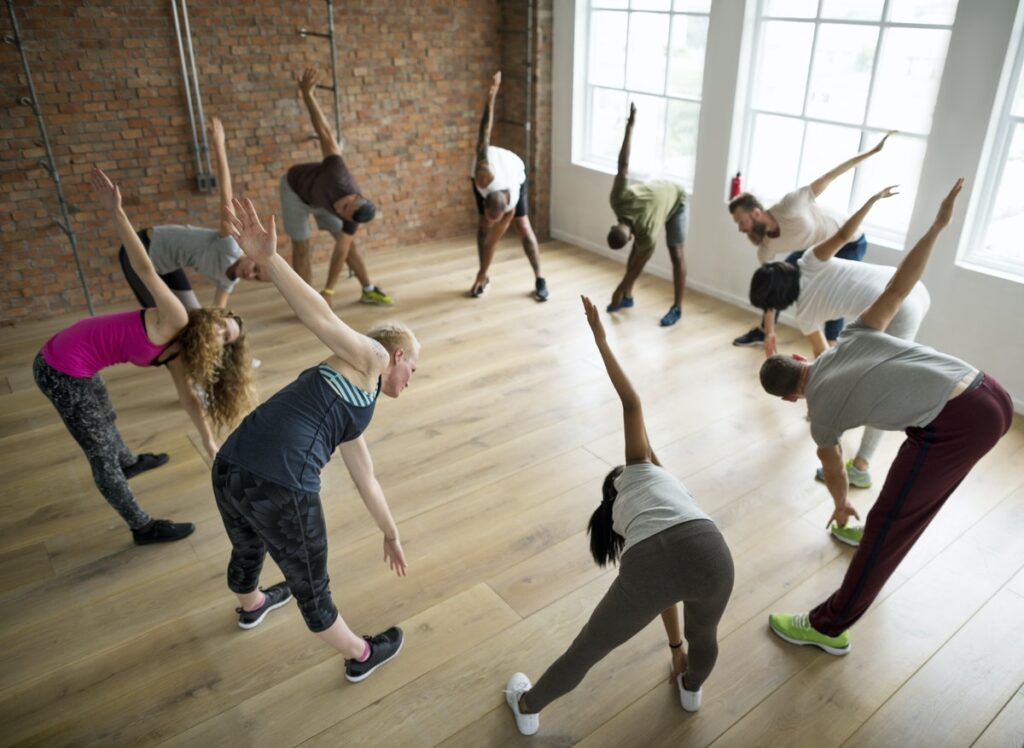Start Living Healthy – National Public Health Week (April 5-11)
Abr 07, 2021
Each year during the first week of April, we celebrate National Public Health Week by highlighting how to start living a healthy lifestyle. This year, more than ever, we need to come together to start living healthy during the COVID-19 pandemic. We can live healthier lives when we eat better, get more sleep, exercise regularly, and build better habits.
Do you wake up most mornings feeling sluggish? Do you require caffeine to help give you energy throughout the day? Now’s the time to ditch the unhealthy quick fixes and develop an energy management plan. We know, it may seem daunting to get started, but soon you’ll be energized to keep going once you feel the benefits of a happier, healthier and more productive lifestyle.
How To Live Healthy
5 Tips To Live A Healthy Life
Think of your energy like money in a bank account. Each day you begin with a certain amount to spend, which depends on certain factors such as age, sleep, stress levels, medical conditions and lifestyle. Throughout your day, there are multiple transactions (activities) that take place as you withdraw energy from and deposit energy into your account. You may not always have control over activities that withdraw your energy, you can take steps to deposit more energy into your account. Here are 5 ways to deposit energy into your energy bank account!
Eat Better
It is well documented that wholesome food is a foundation for well-being, but we often think of healthy eating primarily as a tool for weight loss. However, according to the 2015 Dietary Guidelines for Americans, a balanced diet high in fruits and vegetables, lean protein, low-fat dairy and whole grains is what you need for optimal energy in your energy bank account. As they say, “You are what you eat.” Eating healthy means having a variety of foods from all the food groups to ensure you get a range of nutrients to deposit into your energy bank account and energize you throughout the day. Skip the processed food and stick to fresh or frozen fruits and vegetables, especially nutrient-dense dark, leafy greens and broccoli, as well as orange vegetables, including carrots and sweet potatoes. For healthy protien options, limit the red meat and try different types of fish and legumes. Set a goal to eat 3 ounces of whole-grain cereals, breads, rice or pasta daily.
Get More Sleep
There’s nothing worse than struggling to get out of bed because you are still tired from not getting a good night’s sleep. We all could use better sleep habits. Your body needs at least seven hours of shut-eye each night, so why aren’t we? What are your biggest sleep disruptors? Is it stress? Do you watch TV before bed? Are you eating too close to bedtime? These can all lead to unhealthy sleep habits. Sleep deprivation can cause serious health conditions, as well as negatively affect your mood, motivation and energy levels. Prioritizing a healthy sleep environment is one of the best things you can do to set yourself up for a successful, energized day. Getting more sleep isn’t about sleeping longer — it is about getting better sleep during the nighttime. Snoring a lot? Consider getting tested for sleep apnea and exploring options like a C-Pap machine. Make sure your sleep environment is dark, cool, and quiet. Create a routine for yourself to get ready for bed that involves turning off devices, unplugging from daily stressors, and practicing mindfulness to drift off to that wonderful sleepy land.
Exercise Regularly
While 2019 was the year of the “Dad Bod,” 2020 became the year of the “COVID Bod.” A little exercise will not only help us fit into those pants from 2019, but also promote living healthy. Like eating healthy, exercise is often thought of only for weight loss. However, it is a key part of depositing into your energy bank account and how to be healthy. Do you start to feel sleepy and lethargic halfway through the day? Ever get winded doing simple everyday duties, such as household chores or going up a flight of stairs? Getting 150 minutes of weekly activity is recommended by the Physical Activity Guidelines for Americans and can add to your energy bank account — not subtract from it. How? Exercise relieves stress and tension in your body, strengthens muscles and boosts endurance. This helps your body work more efficiently during other physical tasks or activities and can lend to having a better night’s sleep.
Do Something Meaningful Daily
What are you passionate about? Is there something you would like to do more often or share with others? Do something you enjoy every day, even if it’s something as simple as cooking a healthy meal or listening to your favorite song. Putting effort into the things that matter most to you will help you use and reserve your energy in your energy bank account in ways that will bring out the best in you.
Think Good Thoughts
Living healthy is not just something we approach physically, it is mentally as well. Maintaining a positive and understanding mindset is another important way to conserve energy and build better habits. Try practicing “kind attention.” Here’s an example: Make eye contact with a stranger and smile, while thinking “I wish you well.” Pretty simple. This inward act of positivity can keep you from judging that person and make you feel better inside. Judging others can cause us to place judgment on ourselves, and that type of self-negativity is a bad habit that leads to poor health.
These 5 tips are great examples of how to start living a healthy lifestyle. Taking care of our bodies and minds are the steps to living healthy. Consider making lifestyle changes with a buddy — someone you can go for walks with, cook food with, and do activities that bring you joy.

How To Live Long
Become More Mindful About Caring For Yourself
You are in charge of your habits. Being mindful and caring for yourself are ways to live longer, happier, and healthier. Here are a few tips on how you can become more mindful in your self-care as you commit to a healthier you.
Monitor Your Energy
check your energy bank account multiple times throughout the day, assigning it a number from 1 to 10, with 10 being the highest energy level. Pay attention to the details of your day so you can identify the people or events that impact you the most. Use this exercise to work on ensuring you make enough energy deposits to account for the inevitable withdrawals. Don’t reach for that cup of joe, eventually the energy you need will be already inside you waiting to be use.
Make Incremental Changes
Its estimated that roughly 80% of all New Year’s resolutions fail. Why? Too much chnage all at once without accountibility. Once you are aware of some of the people or events that withdraw your energy, consider your next steps. Rather than tackling everything at once, choose an area that is important to you, and be realistic with the goals you set. For instance, if clutter in your home is a daily stressor, pick one surface, area or section to clear out each week instead of overwhelming yourself with doing it all at once. Then move on to your next goal when you feel ready. You can do this! How do you eat an elephant? One bite at a time! (Please don’t eat elephants)
Plan & Prioritize
Take note of the times during the day when your energy bank account levels are often at their highest. Think of ways you can take advantage of those moments by prioritizing important tasks when you are feeling fresh and productive. If you are always depleted at 3 PM, don’t use this time to start a new project.
Promoting A Healthy Community
HealthCore Clinic Services
¡HealthCore Clinic offers a number of free and paid services that can help you on your journey to living a healthy lifestyle. We host classes on eating healthy, have exercise groups, Pilates classes, walking events, biking events, and more. You can also speak with one of our providers about how to start living a healthy lifestyle, how to have a healthy body, how to be healthy, and how to sleep better at night. If you do not have access to healthy foods, you can talk with us about our food pantry and other alternative options for ensuring you and your family have access to healthy foods.
